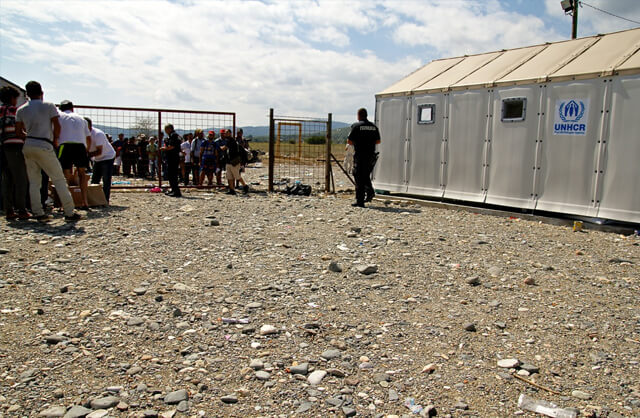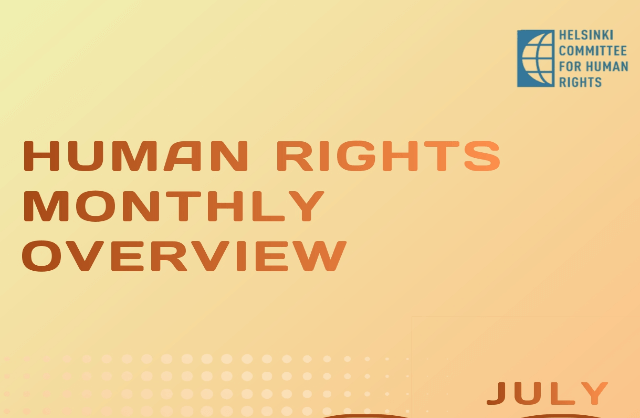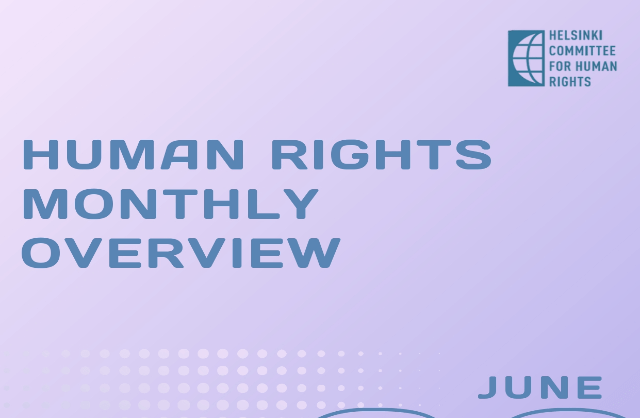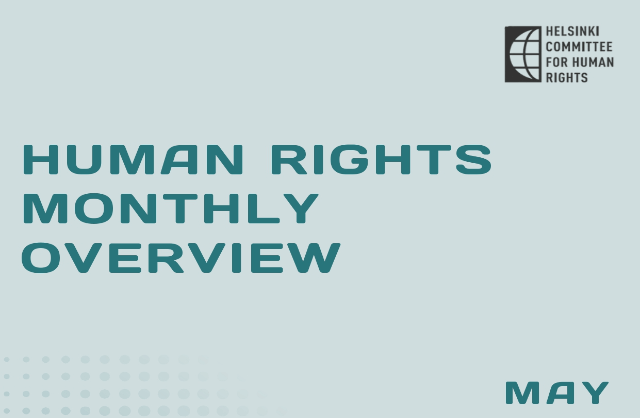The situation at the border crossings Gevgelija and Kumanovo for the period 16.11- 22.11.2015
November 26, 2015

The weekly report on the situation at the border crossings Gevgelija and Kumanovo includes the following topics: Available facilities and conditions at the camp and Institutional treatment.
Gevgelija
Available facilities and conditions in the camp
The gradual upgrade of the physical facilities in the camp has started.
Apart from the organizations which are regularly present, new organizations also sporadically appear, most often in order to distribute food, tea and clothes to the refugees.
Institutional treatment
Occasional overcrowding occurs in the course of deployment of refugees, most often due to the language barrier, as they do not understand the orders of the officers in charge of keeping order. Several such misunderstandings have been peacefully resolved, without the use of force.
Registration documents are still not issued to all of the refugees passing through the camp.
No fiscal receipts are issued for the train tickets yet, and the price of the tickets is still 25 EUR, equal to the taxi or bus fare.
The need for warm clothes and heating in the camp increases, especially at night, when the temperatures are lower.
In the middle of the reporting week, a discriminatory selection of refugees was initiated by Slovenia on the basis of their country of origin. This practice, like a chain reaction was reflected immediately to all border crossings across the Balkan route. As a consequence, only refugees who come from Syria, Afghanistan and Iraq are let through the Republic of Macedonia, and refugees from other countries of origin are not let through. This provides for many refugees to be stuck in the “no mans` land”. They express their revolt though protests and refuse to receive food or other humanitarian aid.
Additionally, the danger of illegal crossings of the state borders is enhanced, and such cases were already noted, which then leads to the appearance of smugglers and brings into question the safety and security of refugees who take those routes. For example, by the end of the week was reported a robbery near Katlanovo, where two Morocco nationals who were crossing illegally were robbed by unknown armed persons. Their money and passports were stolen.
The widely accepted term of “economic migrants”, used by both state officials and in media, is a wrongful and prejudicial determination of the status of the refugees which cannot be established without the individual examination of each case.
Due to the increase in the number of people left in the cross-border region, the need for medical interventions frequently occurs (faints, exhaustion, hearth-attacks, etc.). The Red Cross teams successfully intervened in several situations, but that is not enough. Cases when families are torn apart often occur, which leads to panic and agitation. The filtering of refugees has also led to increased presence of police officers at the border crossing.
Kumanovo
Available facilities and conditions in the camp
The upgrade of the camp in Tabanovce is well under way. Some of the facilities have already been set up, but they have not been put into operation yet. With the upgrade, the camp’s accommodation capacity will increase to 960 people in a sitting position.
The refugees keep complaining about the conditions in the train, where despite paying a ticket worth 25 EUR, they are forced to sit on the floors.
Institutional treatment
Mid-week, this past week (18.11.2015) the process of filtering refugees started at the Serbian border, meaning that those coming from Syria, Afghanistan and Iraq are allowed to cross the border, while those from Bangladesh, Iran, Morocco and other countries are left stranded at the border. Tensions are beginning the rise among the refugees and there has been increased police presence on-field.
The police intervened when a woman, accompanied by her husband and child, fainted. The woman was immediately taken to the camp, where she was provided with medical care and then transported to a hospital with an ambulance vehicle.

This report is made possible by the generous support of the Foundation Open Society Institute (FOSI) within the project „Improvement of the rights protection for migrants and asylum seekers in the Republic of Macedonia“. The contents are the responsibility of the Helsinki Committee for Human rights of the Republic of Macedonia and do not necessarily reflect the views of FOSI.


